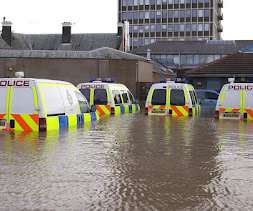A Proposed Strategy to Advocate for Improved Civil Protection in the United Kingdom
Emergency Planning
MAY 6, 2024
Wales has developed three regional emergency response coordination centres, but the rest of the UK is not following suit. For years, local authorities have been starved of funds and resources. As a result, many of them have done relatively little to develop emergency response capability beyond existing 'blue light' capabilities.












Let's personalize your content